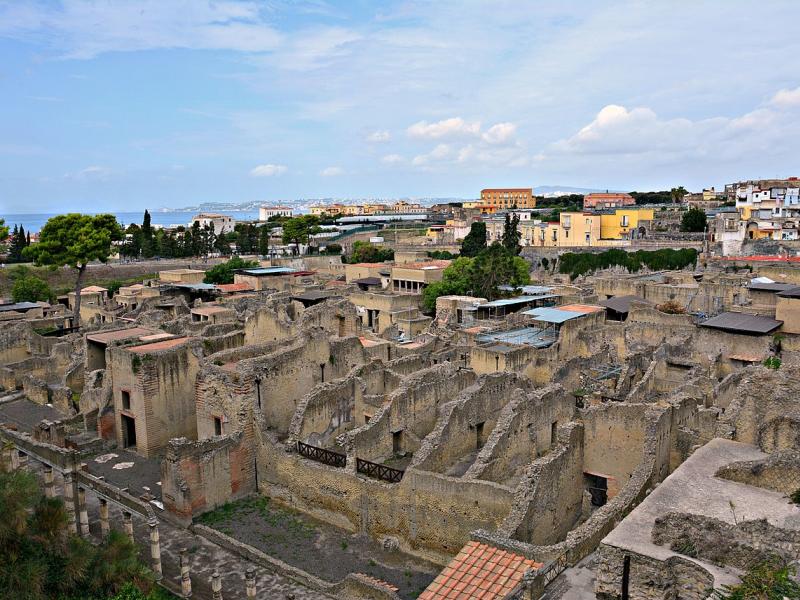
Gli scavi archeologici di Ercolano hanno restituito i resti dell'antica città di Ercolano, seppellita sotto una coltre di ceneri, lapilli e fango durante l'eruzione del Vesuvio del 79, insieme a Pompei, Stabia ed Oplonti.
Ritrovata casualmente a seguito degli scavi per la realizzazione di un pozzo nel 1709, le indagini archeologiche ad Ercolano cominciarono nel 1738 per protrarsi fino al 1765; riprese nel 1823, si interruppero nuovamente nel 1875, fino ad uno scavo sistematico promosso da Amedeo Maiuri a partire dal 1927: la maggior parte dei reperti rinvenuti sono ospitati al museo archeologico nazionale di Napoli, mentre è del 2008 la nascita del museo archeologico virtuale che mostra la città prima dell'eruzione del Vesuvio.
Il sito di Ercolano, gestito dalla Soprintendenza Pompei, viene visitato mediamente da trecentomila turisti ogni anno: nel 1997, insieme alle rovine di Pompei ed Oplonti, è entrato a far parte della lista dei patrimoni dell'umanità dell'UNESCO.
Nel 2016 gli scavi hanno fatto registrare 437 107 visitatori.
